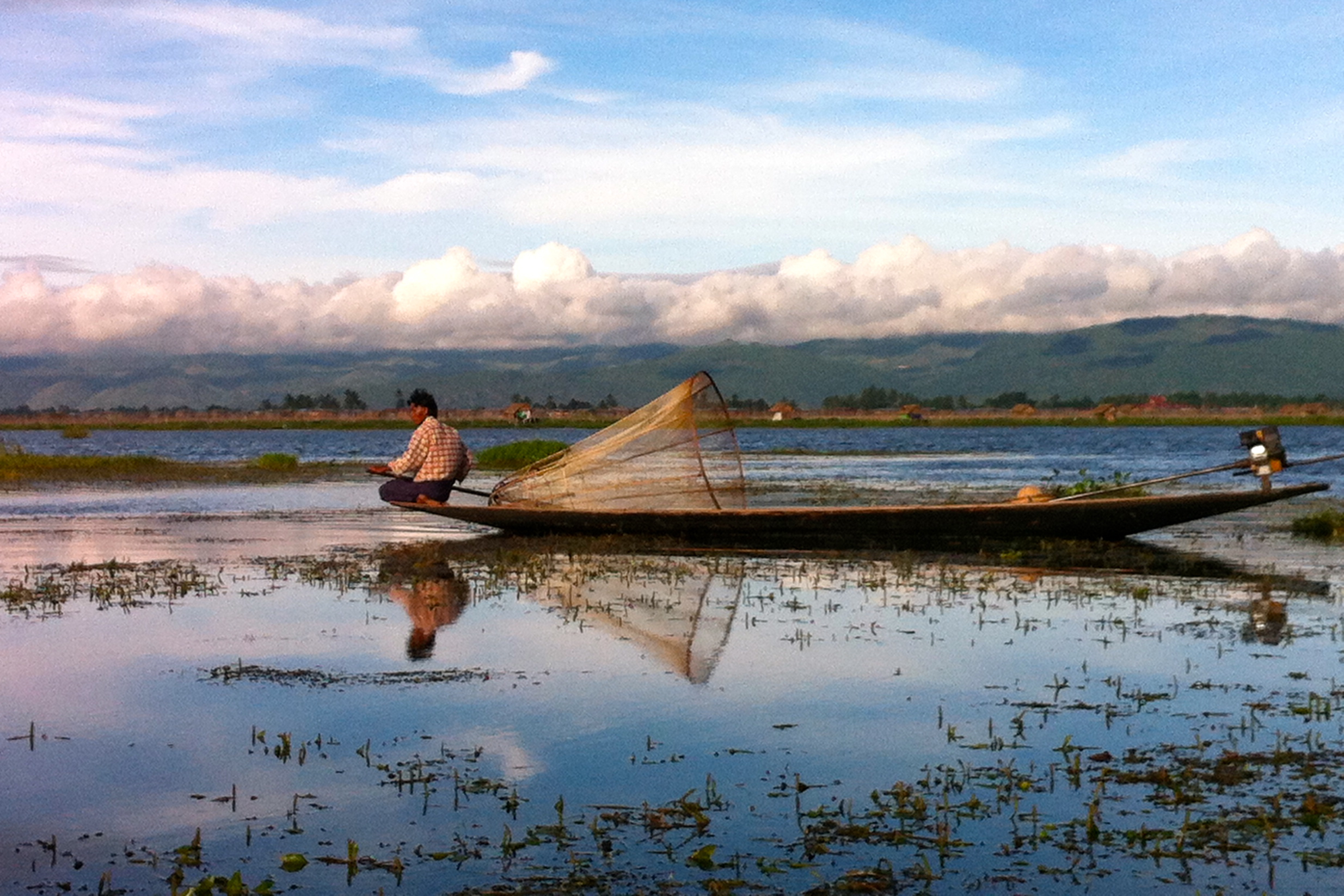By Jackson Snyder, High School Student
Until I came to Burma for the first time last month, the only thing I knew about journalism was the finished product; what I read in the papers or saw on the news. I knew that journalists try to find the truth in matters, and bring those truths to the light of the public. Although I understood the outcome, the process to get to it eluded me. This changed when I arrived at Inle Lake, a popular tourist destination in the Shan state of Burma that is well known for its unique fishermen who paddle their boats with one leg while fishing.

A traditional fisherman working on Inle Lake, June 2013. (Tara Trombetta/Open Hands Initiative)
I was brought out onto the lake before sunrise in a long boat to interview one of the fishermen, which proved easy because of how friendly the Burmese people are. He had no problem taking time out of his day, time that he could be using to earn his living, which amounted to about $1.50 per day, to talk to us. I wasn't sure what questions I should ask him, but Gary Knight, one of the instructors with the program, guided me in the right direction. In addition to hearing about his wife and three children, he told us about the state of the lake, which has become increasingly polluted, mostly by silt from deforestation and fertilizer.
The second assignment that I was sent on was with the fellows. The fellows are a group of 20 very talented journalists ranging from the field of news production to freelance photography. Natalie, Johnny, Lin Sun Oo and I jetted onto the lake together at 6:00 a.m. The assignment was to get interviews from tourists to see their take on the development of Inle Lake. I thought we would get a handful of interviews, but unlike the day before the tourists proved to be very unfriendly. It took hours to get three interviews. I had no idea how difficult journalists have it.
If these tourists didn't want to talk to us, how hard must it have been when the people were scared to talk to us? Up until recently there has been a censorship law in Burma, which meant everything that the papers wrote were submitted to the government before publication. This means that if anyone wanted to speak up against the government, they would have run the risk of outing themselves. This must have added to the difficulty of finding credible sources that were willing to talk.
Despite how hard it may be to do good journalism in a place that -- while freer today than in years past -- is still prone to self-censorship, I learned from the fellows that journalists must conduct their work with integrity. Integrity in the field and on paper is critical. A journalist must stay objective and report fairly and honestly. That is the code of ethics that the fellows I worked with all shared. No matter how difficult the story is to tell or to uncover, every great journalist lives by that same code.